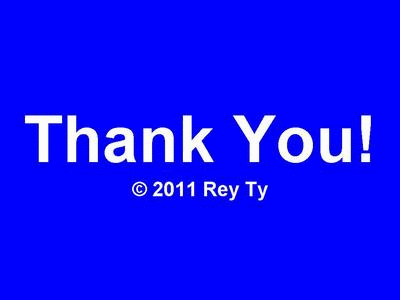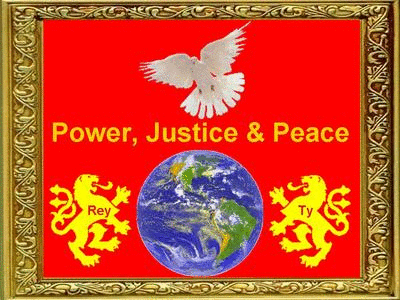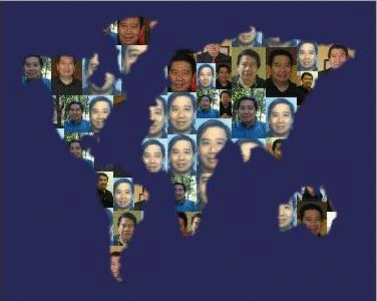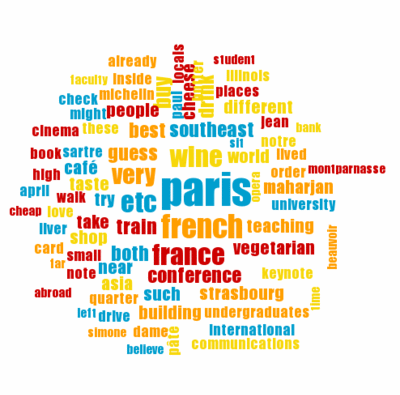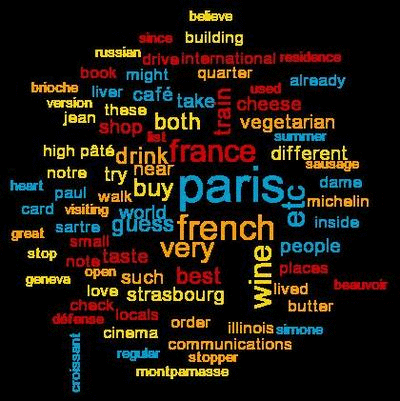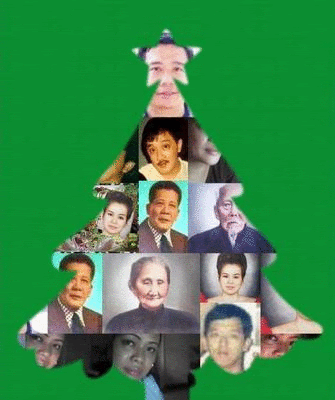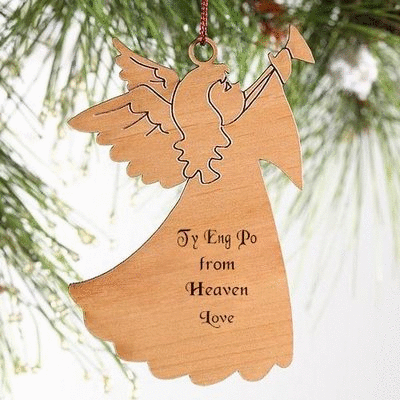Original Source: Posted by Sigma Chang http://www.internationalpeaceandconflict.org/profiles/blog/show?id=780588%3ABlogPost%3A180405&xgs=1&xg_source=msg_share_post
Finding events specifically related to conflict resolution or peace building can be somewhat laborious. This is because, as we all know, there are relatively few organizations that specifically focus on CR, but at the same time, there are many organizations that have a tangential interest in peace and stability.
Gathered on this page are some of the major think tanks, public policy institutes, NGO’s, and universities in Washington, DC and the metropolitan area that frequently host events about or related to conflict resolution. There are very brief descriptions of each organization on this page and links to their respective home and events web addresses. Attending events such as these are not only informative, but are also a great opportunity to network. Presenters and participants are often well placed members of influential organizations, and you have more privileged access to them in these settings. I hope you find this guide useful. Enjoy!
If you have any suggestions for this guide, or want me to add something that I missed please feel free to say so!
Think Tanks and Public Policy Institutes
American Enterprise Institute for American Policy Research 1943
The American Enterprise Institute’s predecessor, the American Enterprise Association, was created to study post-war demobilization and the economic effects of acts of Congress in general. It now continues to inform law makers based on private liberty, individual opportunity, and free enterprise principles.
Home: http://www.aei.org/
Events: http://www.aei.org/events?uc=1
The Aspen Institute 1949
The Aspen Institute is guided by the dual goals of fostering values based leadership and encouraging reflection on what defines a good society. It accomplishes these goals by providing reflection seminars, youth leadership fellowships, policy forums, and public events and conferences.
Home: http://www.aspeninstitute.org/
Events: http://www.aspeninstitute.org/aspenevents
The Brookings Institute 1916
Brookings is a non-profit public policy institute dedicated to conducting high-quality independent research, which it uses for policy recommendations. The goals of the Institute are to: strengthen American democracy; foster the security, economic and social welfare opportunities of all Americans; secure a more open, safe, prosperous, and cooperative international system. Its work is oft cited and influential in public policy.
Home: http://www.brookings.edu/
Events: http://www.brookings.edu/events.aspx
The Carnegie Endowment for International Peace 1910
The Carnegie Endowment is a private, non-profit organization dedicated to international cooperation, and active engagement by the US. It has offices in Beijing, Beirut, Brussels, and Moscow.
Home: http://www.carnegieendowment.org/
Events: http://www.carnegieendowment.org/events/
Cato Institute 1977
Founded by Edward H. Crane, the Cato Institute’s mission is to increase the understanding of public policies based on the principles of small government, free market, individual liberty, and peace. The Institute receives no government funding and individuals contribute 75% of its budget.
Home: http://www.cato.org/
Events: http://www.cato.org/events/calendar.html
Center for Strategic International Studies 1962
David M. Abshire founded the Center for Strategic International Studies to provide insights to all sectors focused on defense and security, regional stability, and transnational challenges ranging from energy and climate to global development and economic integration. It receives funding from many different sources, though the largest portions are corporate and from the foundation itself.
Home: http://csis.org/
Events: http://csis.org/events
Center for American Progress 2003
The Center for American Progress is a think tank dedicated to improving the lives of Americans through ideas and action. It combines bold policy ideas with a modern communications platform to help shape the national debate, expose the hollowness of conservative governing philosophy, and challenge the media to cover the issues that truly matter.
Home: http://www.americanprogress.org/
Events: http://www.americanprogress.org/events
Center for Global Development 2001
CGD is an independent non-profit policy research organization devoted to reducing poverty and making globalization ‘work’ for the poor. It engages policy makers and key financial and development institutions to improve economic and social development prospects for poor countries. It was ranked 15 of several thousand in Foreign Policy Magazine’s survey of top think tanks of the world.
Home: http://www.cgdev.org/
Events: http://www.cgdev.org/section/events/
Center for New American Security 2007
CNAS develops strong, pragmatic and principled national security and defense policies that promote and protect American interests and values. Building on the deep expertise and broad experience of its staff and advisors, CNAS engages policymakers, experts and the public with innovative fact-based research, ideas and analysis to shape and elevate the national security debate.
Home: http://www.cnas.org/
Events: http://www.cnas.org/events
The Connect U.S. Fund 2004
The Connect U.S. Fund promotes responsible U.S. global engagement in the world through grantmaking and operations that advance foreign policy objectives and support an effective, collaborative community of individuals and organizations working toward common objectives. They are a foundation/NGO initiative led by a professional staff, supported by a donors’ collaborative, and with a grantmaking fund managed by Tides Foundation.
Home: http://www.connectusfund.org/
Events: http://www.connectusfund.org/events/upcoming
NEW The Friends Committee on National Legislation 1943
Founded by a group of Quakers, FCNL is the largest registered group of peace lobbyists in Washington, DC. Its nationwide network, tens of thousands strong, works to promote social and economic justice, peace and good governance. The committee was instrumental in creating the Peace Corps and the Arms Control and Disarmament Agency.
Home: http://www.fcnl.org/index.htm
The Henry L. Stimson Center 1989
The Stimson Center is a nonprofit, nonpartisan institution devoted to enhancing international peace and security through a unique combination of rigorous analysis and outreach. Its priorities are to strengthen institutions for international peace, build regional security, and reduce weapons of mass destruction and transnational threads.
Home: http://www.stimson.org/about/?SN=AB200111059
Events: http://www.stimson.org/events.cfm
Heritage Foundation 1973
The Heritage foundation is the nations most broadly funded public policy research institute. Its mission is to formulate and promote conservative public policies based on free enterprise, limited government, individual freedom, traditional American values, and a strong national defense.
Home: http://www.heritage.org/
Events: http://www.heritage.org/press/events/
Hudson Institute 1961
Hudson Institute is a non-partisan policy research organization dedicated to innovative research and analysis, which promotes global security, prosperity, and freedom. Hudson Institute challenges conventional thinking and helps manage transitions into the future through interdisciplinary and collaborative studies in defense, international relations, economics, culture, science, technology, and law.
Home: http://www.hudson.org/
Events: http://www.hudson.org/index.cfm?fuseaction=upcoming_events_list
The Independent Institute 1986
The Independent Institute strives to provide policy analysis that overcomes the ‘politicization and superficiality’ surrounding public policy research and debate. It has offices in Oakland, CA and Washington, DC.
Home: http://www.independent.org/
Events: http://www.independent.org/events/
Institute for Policy Studies 1963
ISP was started by Marcus Raskin and Richard Barnet. Its independence from government and corporate funding as well as the ‘silos’ of academia allows it to combine bold ideas with effective action. It produces books, films, and articles to educate key policy makers and the general public on practical strategies to promote peace, justice, and the environment.
Home: http://www.ips-dc.org/
Events: http://www.ips-dc.org/events
International Center on Non-violent Conflict 2001
The center is a non-profit educational foundation that studies civilian focused strategies, and their uses, for human rights, democracy, and justice. It is entirely funded by the founding chair Dr. Peter Ackerman.
Home: http://www.nonviolent-conflict.org/index.htm
Events: http://www.nonviolent-conflict.org/publicActivity.shtml
The International Institute for Strategic Studies 1958
IISS claims to be the worlds leading authority in political-military conflict. It focuses on political, economic, and social issues, which may lead to instability or international cooperation. Based in London, it has offices in both Washington DC and Singapore, and derives staff and membership from over 90 countries.
Home: http://www.iiss.org/
Events: http://www.iiss.org/events-calendar/
Progressive Policy Institute 1989
PPI is a non-profit corporation and a project of the Third Party Foundation. It aims to define new, progressive politics for America in the Information Age.
Home: http://www.ppionline.org/
Events: http://www.ppionline.org/ppi_ka.cfm?knlgAreaID=126
Middle East Institute 1946
Founded by former Secretary of State Christian Herter, and scholar, George Camp Keiser, the Middle East Institute is the oldest Washington-based institution devoted exclusively to the study of the region. Its mission is to promote greater understanding of the Middle East in America, as well as the United States in the region.
Home: http://www.mei.edu/
Events: http://www.mei.edu/Events.aspx
Migrant Policy Institute 2001
MPI provides analysis, development, and evaluation of migration and refugee policies at the local, national, and international levels. It aims to meet the rising demand for pragmatic and thoughtful responses to the challenges and opportunities that large-scale migration presents to communities and institutions in an increasingly integrated world.
Home: http://www.migrationpolicy.org/about/index.php
Events: http://contact.migrationpolicy.org/site/PageServer?pagename=events
New America Foundation 1999
The New America Foundation addresses the next generation of challenges facing the US by investing in new thinkers and ideas. It is a non-profit public policy institute based on the idea that each generation will live better than the last. Its funding is derived mostly from individuals along with a large donation from the Rockefeller Foundation.
Home: http://www.newamerica.net/
Events: http://www.newamerica.net/events
Peterson Institute of International Economics 1981
According to their website, the Peterson Institute was awarded top think tank of its kind by the first comprehensive survey of such institutions (over 5000 reviewed). It is also considered one of the only widely regarded neutral, nonpartisan economic think tanks in operation.
Home: http://www.piie.com/
Events: http://www.piie.com/events/events.cfm
Search for Common Ground 1982
Search for Common Ground works to transform the way the world deals with conflict, from adversarial approaches, towards collaborative problem solving. It works with local partners to find culturally appropriate means to strengthen societies' capacity to deal with conflicts constructively: to understand the differences and act on the commonalities.
Home: http://www.sfcg.org/
Events: http://www.sfcg.org/donate/help_calendar.html
NEW The Society for International Development - Washington Chapter 1957
SID - Washington is a professional association for individuals and institutions associated with international development in the greater Washington, DC area. It is an independent and neutral convener for knowledge exchange and networking on interventions and current policy issues ("hot-topics") in development across sectoral and organizational lines in order to enhance development effectiveness and an understanding of its benefits.
Home: http://www.sidw.org/mc/page.do?sitePageId=65030&orgId=wdcsid
Events: http://www.sidw.org/mc/community/vieweventcalendar.do?orgId=wdcsid
Streit Council for a Union of Democracies (formerly Federal Union 1939)
The Streit Council works to improve US engagement and effectiveness in the world through better integration with developed democracies. It aims to promote freedom, security, and peace through a widening and deepening of relations and institutions between transatlantic nations.
Home: http://streitcouncil.www2.spacegrant.org/
Events: http://streitcouncil.www2.spacegrant.org/index.php?page=events
United States Institute of Peace 1984
USIP was the result of an act of Congress with bipartisan support and the conviction that the US government needed an official institute devoted to the study and promotion of peace. It engages in activities such as field operations in zones of conflict, cutting edge research, identifying best practices and developing innovative peacebuilding tools, training on conflict management, teaching high school and college students, and supporting policy makers.
Home: http://www.usip.org/
Events: http://www.usip.org/events
The Urban Institute 1968
The Urban Institute analyzes policies, evaluates programs, and informs community development to improve social, civic, and economic well-being. It works in all 50 states and abroad in over 28 countries, and shares its research findings with policymakers, program administrators, business, academics, and the public online and through reports and scholarly books.
Home: http://www.urban.org/
Events: http://www.urban.org/events/
Wilson Center 1968
The Woodrow Wilson Center was founded by an act of Congress and is the official memorial to the late president. It is a non-partisan institute of advanced study as well as a neutral forum for serious dialogue. Its aims are to connect important policy makers with pre-eminent scholars.
Home: http://www.wilsoncenter.org/index.cfm
Events: http://www.wilsoncenter.org/index.cfm?fuseaction=events.welcome
Universities
American University 1893
AU was chartered by an act of Congress to train future leaders with a global outlook, practical idealism, and passion for public service. It was reported to be the number one school for politically active students, and its high academic standards are reflected in the number of awards and merits consistently awarded to them.
http://www.american.edu/
International Studies
Home: http://www.american.edu/sis/
Events: http://www.american.edu/sis/calendar/?h=89
Public Affairs
Home: http://www.american.edu/spa/
Events: http://www.american.edu/spa/Calendar/
Law
Home: http://www.wcl.american.edu/
Events: http://www.wcl.american.edu/calendar/
Johns Hopkins School for Advanced International Studies 1943
Established by Christian A. Herter and Paul H. Nitze to train the next generation of leaders for the post war environment, SAIS has remained committed to this mission in the post 9/11 world. Students come from over 70 countries and about 40% of its 600 strong student body come from abroad. It maintains campuses in Nanjing, PRC and Bologna, Italy.
Home: http://www.sais-jhu.edu/index.html
Events: http://apps.sais-jhu.edu/insider/this_week_calendar.php
George Mason University—Institute for Conflict Analysis and Management
ICAR is committed to interrupting cycles of violence through the development of theory research and practice. It does this by advancing understanding of conflict at all levels, studying the nature, origin, types of conflict, and developing the requisite conditions and processes necessary for conflict resolution.
Home: http://icar.gmu.edu/index.html
Events: http://icar.gmu.edu/Events.htm
George Washington University—Elliot School of International Affairs 1821
The Elliot School provides an interdisciplinary education for analysis and the development of practical application to global issues. It is comprised of six institutes and centers, which each focus on a different field or geo-political region.
Home: http://www.gwu.edu/~elliott/
Events: http://www.elliottschool.org/events/calendar.cfm
GW Law
http://www.law.gwu.edu/Pages/Default.aspx
Georgetown University 1773
The oldest Catholic University in the United States, Georgetown, has a long and consistent history of academic excellence and 'educating the whole person'. It's international focus has frequently been praised, earning it a number one ranking in Masters programs for International Relations (School of Foreign Service) based on faculty in Foreign Policy Magazine.
Home: http://www.georgetown.edu/
Events: http://events.georgetown.edu/
Berkley Center for Religion, Peace, and World Affairs
Home: http://berkleycenter.georgetown.edu/
Events: http://berkleycenter.georgetown.edu/events
Conflict Resolution
Home/Events: http://www1.georgetown.edu/departments/government/conflictresolution/
Institute for the Study of International Migration
Home: http://isim.georgetown.edu/pages/Certificate.html
Events: http://isim.georgetown.edu/pages/Events.html
NEW Program on Justice and Peace
Home: http://www1.georgetown.edu/departments/justice_peace/
Events: http://events.georgetown.edu/events/?CalendarID=66&View=6
School of Foreign Service
Home/Events: http://sfs.georgetown.edu/
Other
Alliance for Peace Building 1999
AfP works to support collaborative efforts between NGOs, government, and transnational government institutions to help promote understanding of peace building, and increase the effectiveness of such efforts. AfP does this by creating networks between practitioners, disseminating best practices, and enhancing capacity of various organizations.
Home: http://www.allianceforpeacebuilding.org/index.htm
Events: http://www.allianceforpeacebuilding.org/events.htm
Amnesty International 1961
Amnesty International is a London based, Nobel Prize winning grassroots activist organization. Its 1.8 million members are dedicated to preventing and ending human rights abused the world over.
Home: http://www.amnestyusa.org/index.html
Events: http://www.amnestyusa.org/events/page.do?id=1102261
The National Press Club 1908
The National Press Club is an association of active or former journalists, government information officers, and people are considered to be regular news sources. It operates based on Walter William’s journalist creed.
Home: http://www.press.org/
Events: http://npc.press.org/calendar/calendar.cfm
United Nations, DC
The UN Information Center’s mission is to promote a better understanding of the UN in Washington. It also serves as an important resource for NGO’s and civil society organization.
Home: http://www.unicwash.org/about/about.html
Events: http://www.unicwash.org/events/events.html
United States House of Representatives Committee on Foreign Affairs 1812
The US House Committee on Foreign Affairs is responsible for oversight and legislation in regard to US activities abroad. These include USAID, the State Department, Peace Corps, reviewing treaties, security developments, etc. The current Chairman is Howard L. Berman.
Home: http://foreignaffairs.house.gov/index.asp
Hearings: http://foreignaffairs.house.gov/hearing_notice.asp?id=1124
United States Senate Committee on Foreign Relations 1816
The Senate Committee is responsible for overseeing US foreign policy agencies including USAID, the State Department, etc. It also considers all diplomatic nominations and international treaties. The current Chairman is Senator John F. Kerry, and ranking minority member is Richard G. Lugar.
Home: http://foreign.senate.gov/index.html
Hearings: http://foreign.senate.gov/hearing.html
World Bank 1945
The World Bank was created following the Bretton Woods conference to finance long term development and reconstruction. It is ‘owned’ by 186 member countries, though routinely the president of the bank is a US national. It now is involved in a number of activities including research and finance of education, health, public administration, infrastructure, financial and private sector development, agriculture, and environmental and natural resource management.
Home: http://www.worldbank.org/
Events: http://web.worldbank.org/WBSITE/EXTERNAL/NEWS/0,,enableDHL:TRUE~hlPK:961926~menuPK:34482~pagePK:34380~piPK:34428~theSitePK:4607,00.html
Rey Ty
You are visitor number
